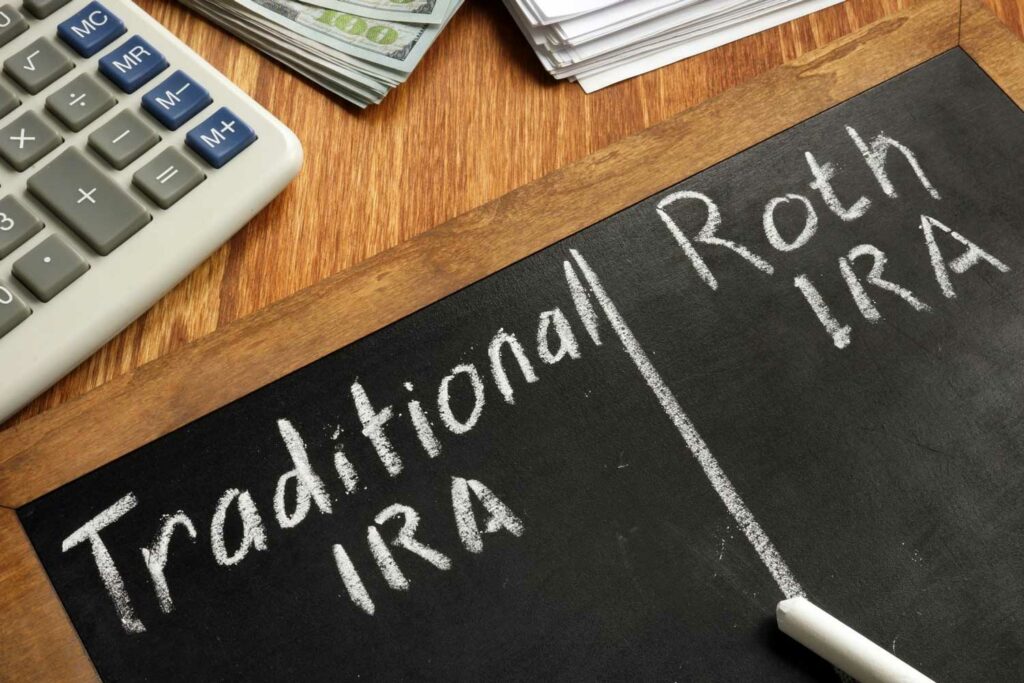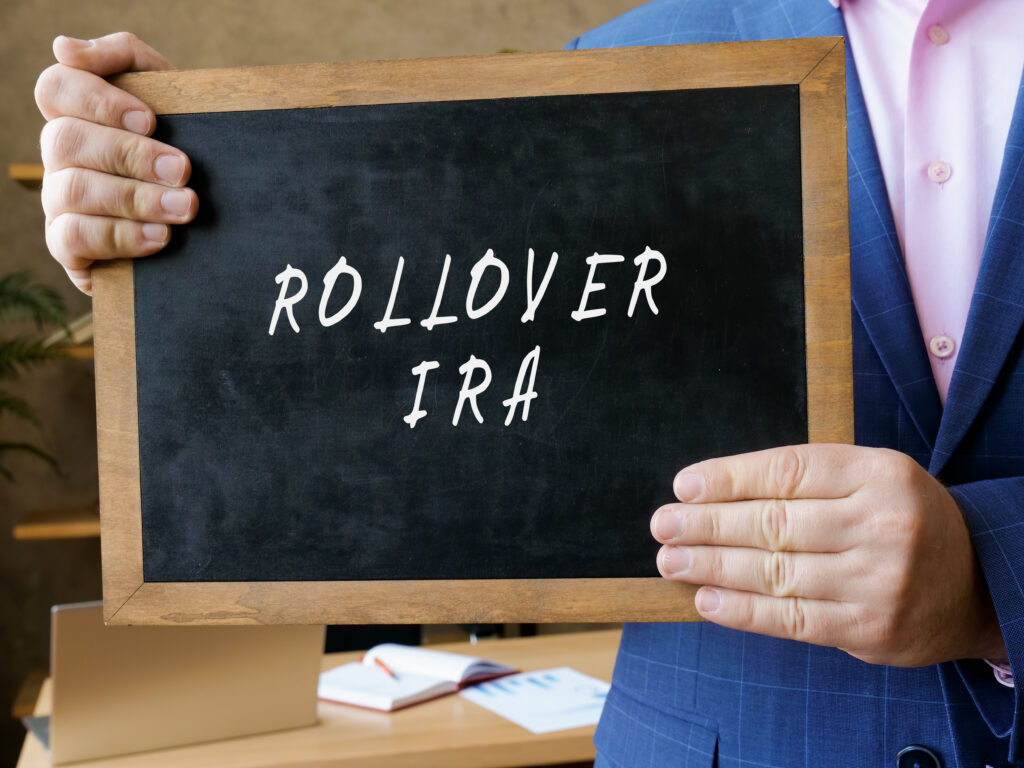Advanced Investing Strategy: Holding Equity Compensation in a Self-Directed IRA
Written By: Daniel Gleich
Key Points
- Equity compensation gives an employee ownership stake in the company they work for, whether in the form of stock options, stock appreciation rights (SARs) or other offerings.
- Equity compensation can be a useful tool for business owners to reward and incentivize key employees.
- Equity compensation can be held in a Self-Directed Roth IRA to allow any potential appreciation of stock to grow tax-free.

A Self-Directed IRA enables you to invest in many different opportunities that you might not have known were possible in a tax-advantaged retirement account. The most popular assets held in a Self-Directed IRA are real estate, precious metals, and shares of privately-owned businesses. Those are just the start! There are dozens, if not hundreds, of assets and advanced investment strategies that you can tap into with a Self-Directed IRA. One of the lesser-known opportunities is placing equity compensation in your Self-Directed Roth IRA so your funds can grow tax-free.
What Is Equity Compensation?
Equity compensation is non-cash payment offered to employees to give them ownership shares in the business. There are several different types of equity compensation, including stock options, stock appreciation rights, phantom stock, restricted stock, and Employee Stock Purchase Plans. Here’s a simplified explanation of each:
- Stock options allow employees to purchase shares of the company at a specified price at a later date. They offer potential upside if the stock price rises.
- Stock appreciation rights (SARs) are similar to stock options, but do not require payment when exercised. SARs are paid out based on the appreciation of the value of a specific number of shares over a set time period.
- Phantom stock is a form of deferred compensation for “phantom” or “mock” stock that mirrors actual stock performance without any company ownership or voting rights. Payments are made based on how much the underlying asset has increased in value over time.
- Restricted stock grants employees ownership of company shares subject to certain conditions or vesting periods they must meet before they can exercise their rights.
- Employee Stock Purchase Plans(ESPPs) are employer-sponsored programs that enable employees to purchase company stock at a discounted rate through payroll deductions.
Equity compensation is somewhat similar in concept to an Employee Stock Ownership Plan (ESOP), in which all employees have access to company stock. However, equity compensation is typically offered to executive leaders and key personnel who add specific value to the company based on any combination of their skills, experience, relationships, and responsibilities.
Benefits of Equity Compensation for Business Owners

Equity compensation enables business owners to reward and incentivize key employees without cutting into their cash flow with direct bonuses. Giving equity also aligns the interests of the employee with those of the company, as the employee gains a vested interest in seeing their shares’ value increase. The vesting period, or the length of time before the stock becomes available to access, encourages the employee to solidify and continue their tenure so they can eventually receive their additional compensation. These benefits add up to position equity compensation as a highly effective tool for attracting and retaining top talent while driving company success.
Benefits of Equity Compensation for Employees
Equity compensation gives employees ownership in the company so that they're truly invested (literally and figuratively) in its success. This can lead to increased productivity and job satisfaction as employees feel like their hard work will eventually pay off. Equity compensation also provides potential financial rewards since equity holders may receive a dividend or have the option of cashing out if the company's value increases. This form of compensation can provide tax benefits since it's usually taxed at a lower rate than other forms of income. Better yet, when held in a Self-Directed Roth IRA, equity compensation can later be distributed tax-free.
What Is a Self-Directed IRA?
A Self-Directed IRA functions similarly to a standard IRA but allows you to invest in alternative assets that a standard IRA doesn’t. A Self-Directed IRA can be opened as a Self-Directed Traditional or Self-Directed Roth IRA. A Roth IRA (in which funds can grow tax-free) is the option that enables the maximum benefits of holding equity compensation in a Self-Directed IRA. We’ll explain why shortly. First, learn more about the Self-Directed IRA basics to get a feel for how the account works in general. Self-Directed IRAs are only offered through regulated custodians like Madison Trust.
Benefits of a Self-Directed IRA
A Self-Directed IRA can help you diversify your portfolio and hedge against the stock market with alternative assets. Any gains on your investments grow tax-deferred if the Self-Directed IRA is set up as a Self-Directed Traditional IRA or tax-free if it’s set up as a Self-Directed Roth IRA. This can give you a sense of freedom and control when it comes to investing and saving for retirement.
The wide range of investment opportunities may inspire you to explore new avenues that you might not have thought of before. Having an experienced and highly-rated custodian like Madison Trust will also give you access to Self-Directed IRA Specialists who can answer your questions you may have along your investing journey.

Letting Equity Compensation Grow in a Self-Directed IRA
Now, it’s time to learn how you can pair equity compensation with a Self-Directed IRA in a synergistic and strategic way.
First, if you are offering or receiving equity compensation, a Self-Directed IRA will allow that compensation to be held in a retirement account. This typically cannot be done with a standard IRA.
Next, recognize the difference between a Self-Directed Roth IRA and Self-Directed Traditional IRA, and how that difference relates to the nature of equity compensation.

In a Self-Directed Traditional IRA, funds can grow tax-deferred, but you’ll still have to pay taxes on any distributions down the road. In a Self-Directed Roth IRA, funds grow tax-free; there are no taxes taken out of distributions because the contributions are made with after-tax money. The purpose of holding equity compensation in a Self-Directed IRA is to later be able to receive the deferred “bonus,” so to speak (including any increase in share value), without it being taxed as income. A Self-Directed Roth IRA allows you to do just that, as long as the equity compensation was placed directly into the IRA at the time it was offered.
Although we’ve provided a simplified outline of this strategy, it can still be relatively complex, with many important considerations. It’s helpful and recommended to discuss investment decisions with a trusted financial professional. Start the conversation with them by forwarding this article and pointing them to our Self-Directed Roth IRA page for reference.
Disclaimer: All of the information contained on our website is a general discussion for informational purposes only. Madison Trust Company does not provide legal, tax or investment advice. Nothing of the foregoing, or of any other written, electronic, or oral statement or communication by Madison Trust Company or its representatives, is intended to be, or may be relayed as, legal, tax, investment advice, statements, opinions, or predictions. Prior to making any investment decisions, please consult with the appropriate legal, tax, and investment professionals for advice.










